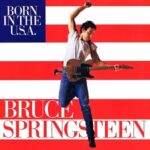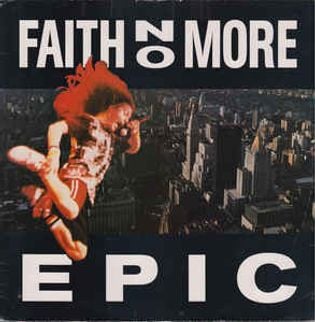 In 1984, Bruce Springsteen released what would become one of the most iconic and frequently misinterpreted songs in rock history: “Born in the USA.” At first listen, the track’s pounding drums, arena-sized chorus, and Springsteen’s commanding vocal delivery give it the feel of a triumphant, patriotic anthem. Crowds roar along with its chorus, and radio play cemented it as a staple of American pop culture. Yet beneath the powerful instrumentation and anthemic sound lies a searing critique of America’s treatment of its working-class citizens and, particularly, its Vietnam War veterans. Far from a simple patriotic rallying cry, “Born in the USA” is a bitter reflection on the promises of the American dream and the harsh realities faced by those who fought for it. Its widespread misinterpretation underscores how sound and surface-level energy can obscure a song’s deeper meaning.
In 1984, Bruce Springsteen released what would become one of the most iconic and frequently misinterpreted songs in rock history: “Born in the USA.” At first listen, the track’s pounding drums, arena-sized chorus, and Springsteen’s commanding vocal delivery give it the feel of a triumphant, patriotic anthem. Crowds roar along with its chorus, and radio play cemented it as a staple of American pop culture. Yet beneath the powerful instrumentation and anthemic sound lies a searing critique of America’s treatment of its working-class citizens and, particularly, its Vietnam War veterans. Far from a simple patriotic rallying cry, “Born in the USA” is a bitter reflection on the promises of the American dream and the harsh realities faced by those who fought for it. Its widespread misinterpretation underscores how sound and surface-level energy can obscure a song’s deeper meaning.
Springsteen wrote “Born in the USA” as part of his 1984 album of the same name, an effort to explore the complex realities of American life. While the track’s chorus exudes power and determination, its verses tell a starkly different story—one of alienation, disillusionment, and neglect. The protagonist is a working-class American, drafted into a war he does not fully understand, returning home to unemployment and indifference rather than the recognition and opportunity he was promised. Springsteen’s intention was to expose systemic failures, but the soaring music and repeated chorus often led listeners to interpret the song as a patriotic celebration rather than a critical reflection.
The Story Behind the Song
“Born in the USA” emerges from a deeply personal and social context. Springsteen, a native of New Jersey, was known for his empathy toward blue-collar Americans and veterans, many of whom were returning from Vietnam facing economic hardship, social alienation, and mental health struggles. The song’s narrative follows a man drafted into the war, surviving the conflict, and returning home to a nation that offers no support, guidance, or understanding. The repeated line in the verses, “Got in a little hometown jam / So they put a rifle in my hand”, immediately signals that the song is not celebrating military service but instead highlighting coercion, limited options, and societal failure.
By juxtaposing the harsh realities described in the verses with the booming, seemingly celebratory chorus, Springsteen crafts a contrast that reflects the contradiction between American ideals and lived experience. The repetition of “Born in the USA” is ironic—while the protagonist is technically an American, his country has failed him. This deliberate tension is central to the song’s power, revealing Springsteen as both a patriot and a social critic: he loves America enough to call out its flaws.
Lyrics and Themes
The lyrics of “Born in the USA” are deceptively simple, but they are rich with social commentary. The story begins with the line “Born down in a dead man’s town”, evoking a sense of economic despair and limited opportunity. The protagonist is conscripted into the military (“Got in a little hometown jam / So they put a rifle in my hand”) and sent to fight in Vietnam, a war often criticized for its unclear objectives and high human cost. Upon returning, he encounters unemployment and alienation, underscoring the systemic neglect of veterans.
This narrative confronts the myth of the American dream, suggesting that being “born in the USA” does not automatically guarantee freedom, opportunity, or respect. The song addresses themes of economic inequality, the human cost of war, and the disillusionment of those who serve their country only to find it indifferent upon their return. It is both deeply personal—rooted in Springsteen’s empathy for real individuals—and broadly political, critiquing national policies and social attitudes of the time.
Misinterpretation and Misuse
Despite its critical message, “Born in the USA” was widely misunderstood upon release, particularly by mainstream audiences and political figures. The song’s rousing chorus, catchy melody, and stadium-ready sound led many to interpret it as a patriotic anthem celebrating America’s military might and national pride. It became a favorite at rallies, sporting events, and patriotic celebrations, often stripped of its critical context.
Springsteen himself was frustrated by this misreading. In interviews, he emphasized that the song was about the struggles of working-class Americans and veterans, not a celebration of the nation or its military policies. The contrast between musical form and lyrical content—loud, brash, and seemingly triumphant versus reflective, bitter, and critical—exemplifies how musical arrangement can influence interpretation, sometimes at odds with an artist’s intent.
Musical Composition and Style
Musically, “Born in the USA” is immediately arresting. Its opening synthesizer riff is simple but powerful, setting a driving rhythm that propels the song forward. The heavy snare hits, booming bass, and rock guitars create a sense of energy and urgency, while Springsteen’s vocals convey a mix of anger, defiance, and vulnerability. The arrangement is intentionally anthemic, designed to capture attention and resonate in stadiums, but the lyrical content ensures that beneath the surface lies a story of struggle and disappointment.
The juxtaposition of celebratory sound and critical lyrics is part of what makes “Born in the USA” so remarkable. It allows the song to engage listeners on multiple levels: superficially, it is exciting and energetic; at a deeper level, it is sobering, encouraging reflection on societal neglect and the complexities of American identity. This tension between musical form and lyrical meaning exemplifies Springsteen’s skill as a songwriter and his ability to craft songs that are emotionally and intellectually compelling.
Reception and Legacy
Upon its release, Born in the USA, the album, became a massive commercial success, catapulting Springsteen to international stardom. The title track became one of his most recognizable songs, reaching the top of the charts and securing a place in popular culture that persists to this day. However, the widespread misinterpretation of the song highlights the challenges of conveying nuanced social critique within popular music.
Over time, critics and scholars have increasingly recognized the song’s true message, emphasizing its commentary on economic inequality, veteran neglect, and the human cost of war. “Born in the USA” has become a case study in the complexities of musical communication, illustrating how production, arrangement, and performance can shape, obscure, or amplify lyrical meaning.
Cultural Impact
“Born in the USA” remains culturally significant both for its musical innovation and for its critical social commentary. It has been covered and referenced by numerous artists, used in documentaries and films, and invoked in political discourse, often sparking debate about its true meaning. The song’s dual identity—as both a misunderstood anthem and a searing critique—underscores the power of music to reflect societal tensions and provoke discussion.
Springsteen’s portrayal of the disillusioned veteran also helped to humanize the struggles faced by returning soldiers and highlight the failures of social systems designed to support them. The song speaks to broader themes of alienation and inequality in America, reminding listeners that patriotism and critique are not mutually exclusive.
Live Performances and Audience Connection
In live performances, “Born in the USA” often takes on additional layers of meaning. Springsteen has used the song to both energize crowds and encourage reflection, blending the spectacle of rock performance with social commentary. Audiences respond with enthusiasm to the powerful chorus, but attentive listeners are drawn into the narrative of struggle and disillusionment, creating a communal recognition of shared experiences and societal flaws.
This live duality mirrors the song’s original intent: to engage and entertain while also provoking thought and empathy. It demonstrates Springsteen’s mastery in creating music that resonates on both emotional and intellectual levels.
Conclusion: The Anthem Behind the Misunderstanding
Released in 1984, Bruce Springsteen’s “Born in the USA” is far more than a patriotic anthem. Beneath its thunderous drums, stadium-ready chorus, and powerful melody lies a nuanced critique of America’s treatment of working-class citizens and Vietnam War veterans. It is a song about disillusionment, neglect, and the tension between national ideals and individual reality.
Springsteen’s genius lies in crafting a song that operates on multiple levels: it is immediately engaging and accessible, yet it rewards deeper listening and reflection. The misinterpretation of “Born in the USA” as a purely celebratory patriotic song underscores the complex relationship between musical form, lyrical meaning, and audience perception. Ultimately, the track stands as a testament to the power of music to challenge assumptions, provoke thought, and illuminate truths about society and human experience.
“Born in the USA” is a reminder that patriotism can coexist with critique, that love for one’s country does not preclude acknowledging its failings, and that music, at its best, can both inspire and confront. It remains one of Springsteen’s most enduring and impactful works, a symbol of the struggle, resilience, and complex realities of American life.


